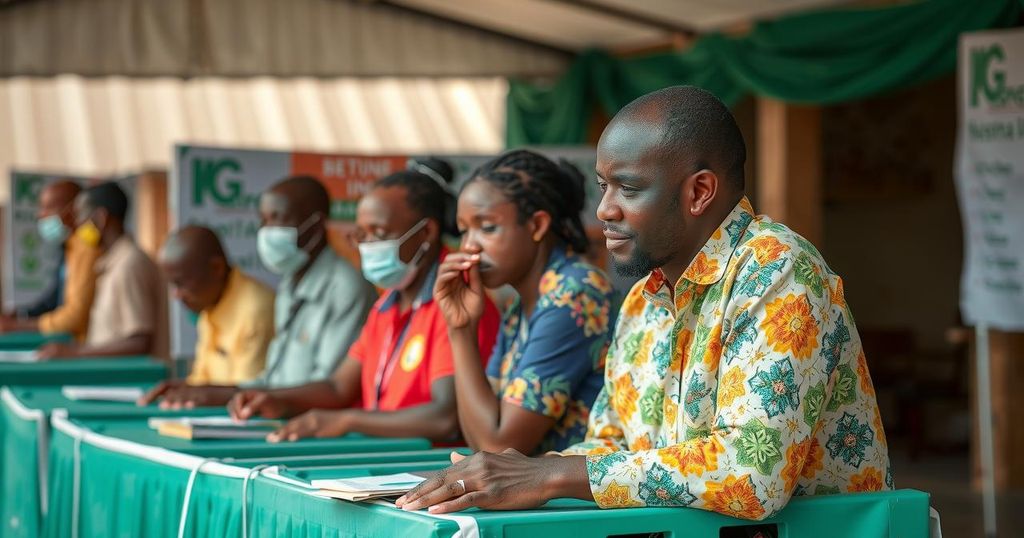Ghana’s Elections: A Test of Democracy Amid Economic Turmoil

Ghana has commenced its presidential and legislative elections amidst a severe economic crisis. Approximately 18.7 million voters are registered to participate in this pivotal vote, reflected against rising extremist violence and coups in the region. Despite these challenges, the leading candidates have failed to inspire confidence for substantial change.
On Saturday, Ghana initiated its presidential and legislative elections amid one of the gravest economic crises the nation has confronted in a generation. Polls opened with approximately 18.7 million registered voters participating in what is expected to be a pivotal moment for democracy in a region increasingly affected by extremist violence and political instability. However, prospects for significant change appear limited, as both leading candidates present their own inadequate solutions to the country’s pressing issues.
Ghana, a West African nation, is gearing up for a critical election against a backdrop of economic adversity that has strained its citizenry. For the first time in many years, the country faces a scenario where the electoral process could indicate the strength and resilience of its democratic institutions, especially at a time when neighboring countries are grappling with violent conflicts and governmental disruptions. This context heightens the significance of the electoral choices available to Ghanaians as they look toward the future.
In summary, the ongoing elections in Ghana serve as a crucial benchmark for the nation’s democratic process during a period of economic distress. With over 18 million voters responsible for choosing their next leaders, the lack of viable alternatives from the main candidates raises concerns about the potential for meaningful reform. This election ultimately reflects not only the aspirations of the Ghanaian people but also their enduring resilience against the backdrop of regional instability.
Original Source: www.washingtonpost.com








